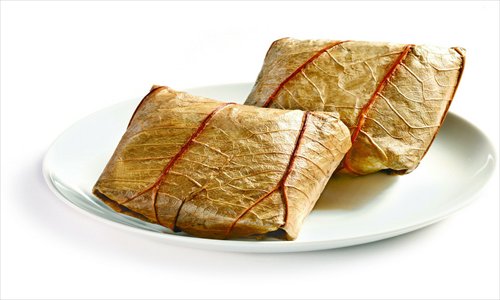The heat is off
Chushu means “end of heat,” and it indicates that summer time is coming to an end and that temperatures will start to decline gradually. It usually falls on August 23 or 24 (23 this year) when the sun reaches 150 degrees longitude.
Autumn coolers
Chushu, which means "end of heat" or limit of heat, is the 14th solar term in the Chinese agricultural solar calendar and usually falls on August 23 when the sun reaches 150 degrees celestial longitude. It indicates that summer time is coming to an end and that temperatures have peaked and will start to decline gradually. During this period, when rain decreases and the air dries, water-abundant foods are in season and are just what the human body needs to counteract the effects of autumn "dryness."
Food for thought
This year, liqiu, or "the start of autumn," officially arrives at 10:30 am on August 7 according to the solar calendar. As a Chinese proverb goes, when autumn starts before noon on the day of liqiu, it is predicted that the following days will become gradually cooler. If it falls after noon on liqiu, then the autumn heat is going to last for some time.
Into the fall
Liqiu, or "the start of autumn," falls on August 7 this year. As the name suggests, it usually foretells the end of the heat of summer. But given the geographical and climatic diversity in China, autumn naturally arrives at different times. In the North, after liqiu the breeze turns cooler, and hand-held fans can be put away. While in most southern parts of China, there may still be spells of hot weather after liqiu.
Keeping "cold" at bay
Amid the bright and scorching sunlight, dashu or “great heat,” the last official solar term in summer arrived last Sunday, July 22. This date usually marks one of the hottest days of the year. And in China, there is a special term to mark the hottest period of every year: sanfu, which consists of roughly 30 days and, in this year, will last from July 18 to August 16.
The lotus eaters
Dashu, or “great heat,” marks the beginning of the hottest period of the year. Dashu falls on July 22 this year, a time when the sun is normally scorching during the day, with high temperatures lingering on into the night. Given the high temperature and humidity in the air, thunderstorms also happen from time to time.
More than skin deep
Good nutrition isn’t the only way to stay healthy in hot weather
An appetite for summer
The solar term of xiaoshu, or "Lesser Heat," falls on July 7 this year, and indicates that the summer heat has well and truly arrived. This usually marks the end of the “plum rain” and the beginning of the dry, hot season in the Yangtze River Delta region. In the north of China meanwhile, the date marks the move into the area’s rainy season.
A bittersweet summer
The summer solstice, or the solar term xiazhi in Chinese (which falls on June 21 this year), is the longest day of the year, and often heralds the beginning of very hot spells of weather.
A Taste of Summer
The summer solstice (which falls tomorrow this year) is the day when people living in the northern hemisphere enjoy the earliest sunrise and the latest sunset of the year. According to the ancient Chinese Book of Rites (which recorded customs in the country before the Han Dynasty 206BC–220AD) when the summer solstice arrives, cicadas start to sing, and hibiscuses are in full bloom. In Chinese the term is xiazhi, which literally means “summer is coming.”
Keeping body and soul together
Mangzhong, the ninth of the 24 solar terms in the Chinese agricultural solar system, is not only a vital time for the sowing of cereal crops during the two weeks from June 5 to June 20, but is also important for people to stay healthy because of the changeable weather. And the Global Times has discovered some practical tips for keeping fit during mangzhong, everything from daily living to diet and disease prevention.
A date for delicacies
The ancient Chinese created an agricultural solar system – still in use today – that is based upon their observation of crops, climate, astrology, and the study of animal and plant life cycles. The system guided farmers as to when to sow seeds and when to harvest them, and this system has now been in place for more than 2,000 years.





